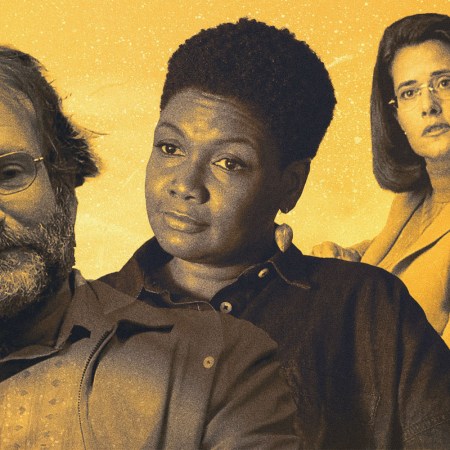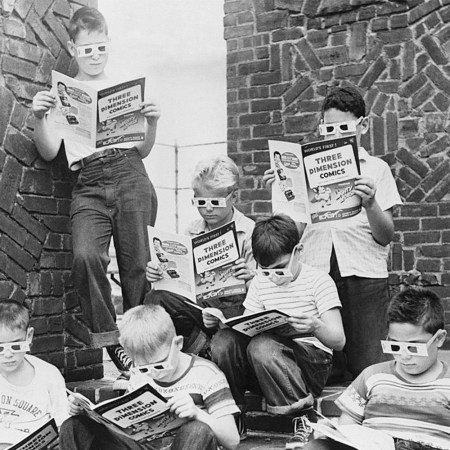Brian was just a kid when he first saw the movie Good Will Hunting and wasn’t thinking about therapy or his mental health. The 29-year-old engineer was mostly just fascinated by stories about repressed geniuses and Matt Damon’s background story of being a Harvard dropout. He also thought it was pretty rad that the original script was intended to be a spy-thriller.
All of that combined appealed to his sixth-grader sensibilities when he saw the film broadcasted on cable seven years after it was released — so much so that the story of a guy who went to therapy to avoid jail time is still one of his favorite movies.
It wasn’t until he began struggling with anxiety and symptoms of obsessive compulsive disorder in his early twenties that Brian even thought about going to therapy. He was checking his locks and the stove 10 times before leaving the house, and then one night when he was coincidentally watching another Matt Damon spy movie, The Bourne Identity, his buddy gave him an edible that was too strong and he had a complete breakdown.
“I went for a walk and started having all these intrusive thoughts,” Brian tells me. “I found a therapist the next week.” After his first few sessions, Brian started to realize how much his favorite movie shaped his expectations. “Therapists kind of guide you to the answers rather than try to solve things for you,” he recalls. “The therapist is more or less trying to help him find his own way.”
Counselor and life coach Sam Nabil recalls seeing Good Will Hunting in 1997 when it first hit theaters. He didn’t realize at that moment that he wanted to work in the mental health field, but in retrospect, it steered him in that direction. And like Brian, the movie gave him a sense of what the therapeutic process was really like.
“It didn’t reinforce the idea that going to therapy magically cures all their dysfunctions,” Nabil explains. Rather, Good Will Hunting showed how complex, uncomfortable and intense real introspection can be, even with the help of a mental health professional and a genius-level IQ. The movie may not have convinced men to go to therapy directly, but it gave a lot of guys a reference point for how the process might go once they got there on their own.
Of course, not every guy is expecting to get choked by their therapist for disrespecting their dead wife, like Damon’s character Will does at his first appointment with Sean Maguire, played by Robin Williams. But even in scenes that are obviously exaggerated by Hollywood, it shows “how therapy can easily become a pissing contest, especially when unprocessed trauma calls the shots and makes intimacy feel like the silliest and scariest thing in the world,” clinical psychologist Michael Alcee says. In other words, it gives guys an idea of how therapy might feel at its worst — like you’re up against a wall and can’t breathe.
Alcee, who also saw the movie in 1997 at the age of 20, remembers being intrigued by the therapy scenes years before he decided to become a psychologist. “This model of men sharing in strength and vulnerability together in the process of therapy was very revolutionary,” he notes.
Not every guy who is a fan the movie is convinced that Good Will Hunting represents therapy accurately. To Noam, who saw the movie on cable when he was 10 and has been in therapy for depression on and off since his teenage years, Will and Sean’s exchanges were not like any of his therapy sessions. “Therapy, in my experience, is boring. It’s work. It’s not usually thrilling or exciting or hilarious,” Noam, a 31-year-old academic studying philosophy, says. “Few therapists are as charismatic as Robin Williams.”
Casey, a professor of psychology at a local community college, echoes similar critical sentiments. As much as the movie “rocked my world on many frequencies,” it also made him feel more let down by the therapeutic process in real life. “The movie may provide some very unrealistic expectations for the rate of growth Will experiences. It doesn’t happen that quickly,” Casey notes, with some hope. “I’m always looking for my Robin Williams of therapy.”
At the same time, Casey connects with the movie to this day and credits it with getting him interested in the field of psychology. Hoping to become a therapist himself one day, Casey recently got a tattoo on his ribs of the math equation Will was completing at MIT because of how much the movie affected him. “It spoke to me in a way that made me feel, just, kind of seen,” he says.
Noam agrees: “It’s a mixed bag, but I love it.” For instance, by today’s standards, the movie may present a limited, hyper-masculine view of therapy, where men only get help when it’s court-ordered.
But for 1997, Noam suspects the movie did a lot for men’s mental health that they needed. “It’s not hard to make the case that the movie expresses a kind of toxic masculinity in addition to sensitive masculinity,” he says, but it was crucial to show men talking about their feelings in this way, even if it was not entirely realistic. “The ways it depicted men as emotional and able to connect with one another, not in contrast to their masculinity but as an expression of their masculinity, has had a real, positive impact.”
Jay didn’t think the therapy scenes were that important to the movie when he first saw the movie when he was 17. “For like a decade after release, I saw this as a movie about Will’s relationship with his friends and Skylar more than anything else,” the 41-year-old who works in tech sales tells me. But after starting therapy to work on his own relationships over the past three years, he recently rewatched the movie after a trip to the bench Damon and Williams sat on. That was when something finally clicked. Your move, Chief.
As much as the movie meant to him initially, like many people, “I didn’t think therapy was the answer, I thought it was a small part,” Jay says. Now that he’s talking to a therapist, “I see why I was so drawn to the movie. I needed to unburden, I needed someone to tell me that it’s not my fault, instead of hanging onto so much for so long.”
Even after the tragic manner in which Williams lost his life to suicide in 2014, the movie remains an essential touchpoint in many men’s internal work on themselves. On top of that, the loss of musician Mac Miller, who died of an accidental overdose in 2018 and sampled dialogue from the movie on with song “Soulmate” have made men “realize that mental health struggles are, indeed, real and in need of addressing,” Nabil says.
These tragedies have “emphasized that having insight into how you should handle and manage your mental health is far different from actually feeling it and experiencing all that it comes with,” Nabil adds. “To men and their mental health, the loss of an icon known to make people laugh and entertain reinforced their tendency to keep it all in and be quick-fixers.”
As men continue to die by suicide and experience substance abuse at disproportionately high rates, it’s apparent that they need more than platitudes like “It’s not your fault.” But as Jay felt that day visiting the bench, sometimes that phrase is a good place to start, no matter how cheesy the movie may make it seem over 20 years later. To this day, it’s Brian’s favorite movie to quote with his therapist, who he still sees regularly. “I say it to my friends all the time,” Brian says.
It might be difficult to imagine a psychologist saying that to a client in earnest, but to Alcee, it’s even harder to avoid it. “It can actually be a quite important and useful sentiment to convey to clients, especially those who have been abused and had to internalize abuse as their own fault,” he explains. “But the phrase probably can sound trite because it was used in the film and took on a life of its own like any famous line.”
And while he tries to rephrase the same sentiment in sessions when it’s necessary, sometimes the quote slips out. But ultimately, he knows it’s not his fault.
This article appeared in an InsideHook newsletter. Sign up for free to get more on travel, wellness, style, drinking, and culture.
























